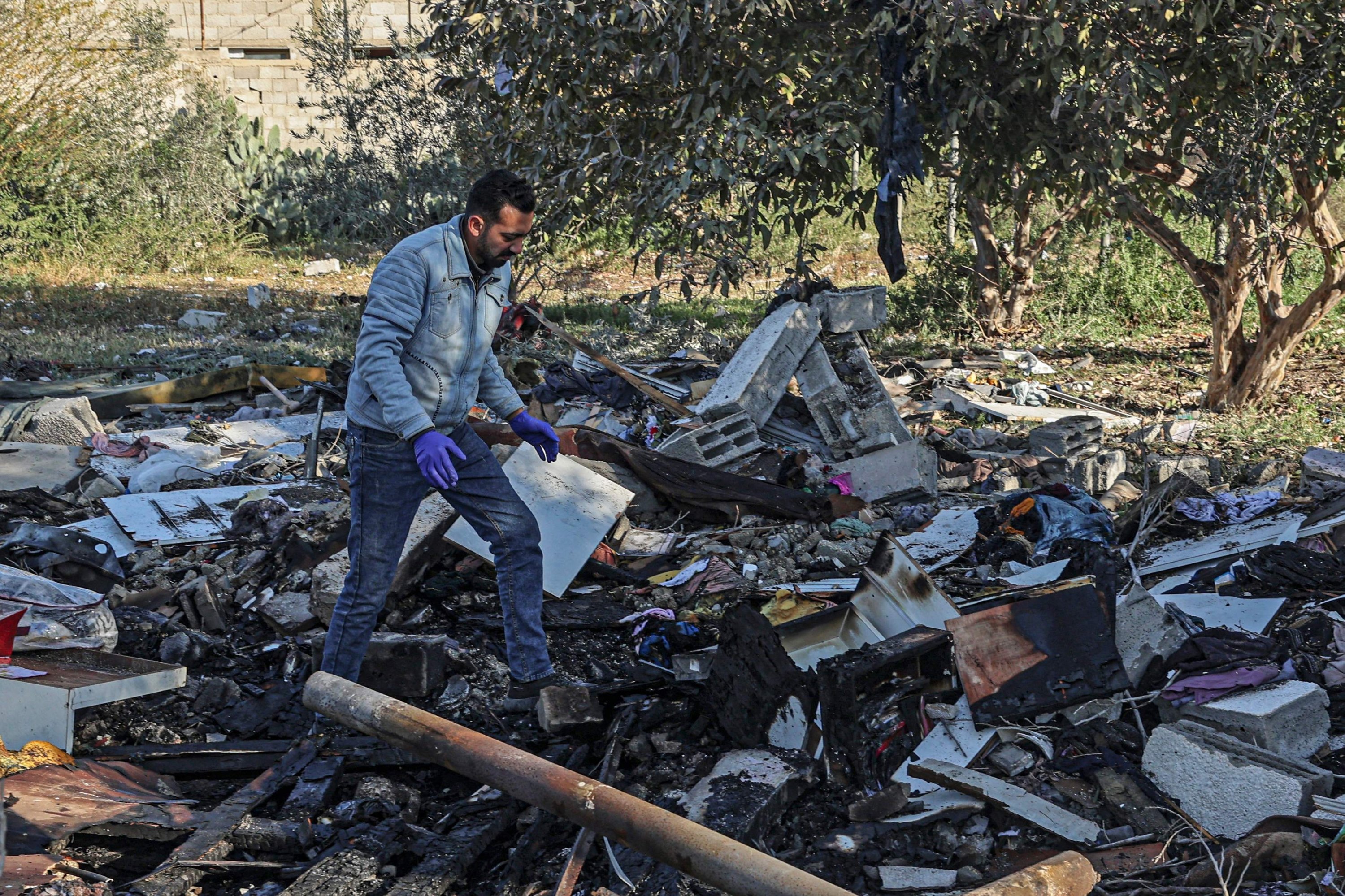© Turkuvaz Haberleşme ve Yayıncılık 2025
As the Islamic holy month of Ramadan began Monday, there was no sign of an imminent cease-fire amid rising attacks by Israeli forces on Palestinians in Gaza.
The region is grappling with a severe humanitarian crisis, exacerbating the already dire situation in the besieged Palestinian territory.
A Spanish charity ship loaded with food aid is poised to depart from Cyprus for Gaza, where the U.N. has repeatedly sounded alarms about the looming threat of famine.
Despite these efforts, aid groups lament that only a fraction of the necessary supplies to address basic humanitarian needs have been permitted into Gaza since October, when Israel tightened its blockade.
On the shores of Gaza, Mohammed Harara waited anxiously Sunday evening, hoping for the arrival of aid that could offer some relief amid the turmoil.
"I've been waiting since this morning because tomorrow is the start of the holy month of Ramadan, and the situation is very tragic," he said.
The nongovernmental organization Open Arms said its boat would tow a barge with 200 tons of food, which its partner, the U.S. charity World Central Kitchen, would then unload on Gaza's shores.
It was expected to depart "within the coming hours," Cypriot government spokesman Konstantinos Letymbiotis told the Cyprus News Agency.
Jordanian, U.S., French, Belgian, and Egyptian planes parachuted aid into northern Gaza on Sunday, but the United Nations' aid coordinator for the area has said boosting supply by land is the best way to get assistance to the territory's 2.4 million people.

Some of the airdropped food packages smashed open on impact, leaving residents picking through the dirt to salvage what they could, AFPTV images showed.
The war triggered by the Oct. 7 Hamas incursion on Israel has killed over 31,045 Palestinians, mostly women and children, according to the Health Ministry in Gaza, where vast swathes have been reduced to a bombed-out wasteland.
Weeks of talks involving U.S., Qatari, and Egyptian mediators have aimed for a six-week truce and the release of many of the hostages taken on Oct. 7 that Paelstinian resistance groups are still holding. In return, Israel would free Palestinian prisoners being held in Israeli jails.
The aim had been to halt the fighting by the start of Ramadan.
Both sides have blamed each other for failing to reach a truce deal after Israel demanded a full list of surviving hostages and Hamas called for Israel to pull out all its troops from Gaza.
A source with knowledge of the truce talks told AFP that "there will be a diplomatic push, especially in the next 10 days," with a view to securing a deal within the first half of Ramadan.
The holy month this year is "all pain," said Ahmed Kamis, 40, in Rafah, where around 1.5 million people have tried to find refuge but are still at risk from Israeli bombing.
Israel has also threatened to launch a ground operation into the southern city.
In Washington, President Joe Biden, who faces growing criticism for his steadfast support of Israel as the civilian death toll in Gaza soars, issued a statement marking the start of Ramadan.
"This year, it comes at a moment of immense pain," Biden said.
"As Muslims gather around the world over the coming days and weeks to break their fast, the suffering of the Palestinian people will be front of mind for many. It is front of mind for me," Biden added.
In Saudi Arabia, King Salman called in his Ramadan message for the international community to "uphold its responsibilities to put an end to these heinous crimes and ensure the establishment of safe humanitarian and relief corridors."
In a message of his own, U.N. chief Antonio Guterres expressed his "solidarity and support to all those suffering from the horrors in Gaza. In these trying times, the spirit of Ramadan is a beacon of hope, a reminder of our shared humanity."
Biden on Saturday stressed his growing impatience with Israel's right-wing Prime Minister Benjamin Netanyahu, telling broadcaster MSNBC that the Israeli leader "must pay more attention to the innocent lives being lost as a consequence of the actions taken."
At this stage, said Biden, Netanyahu's approach to the war was "hurting Israel more than helping Israel."
Netanyahu, under pressure from desperate families of hostages still held in Gaza as well as critics of his government, on Sunday rejected Biden's comments and said most Israelis back "the action that we're taking to destroy the remaining ... battalions of Hamas."
He said Israel's military had killed "at least 13,000 ... fighters," but did not give details on how the figure was derived.
The Hamas incursion that started the war resulted in about 1,160 deaths in Israel, according to Israeli official figures.
The resistance groups also took around 250 hostages, dozens of whom were released during a week-long truce in November. Israel believes that 99 hostages still in militants' hands remain alive and 31 have died.
The U.N. has reported particular difficulty in accessing northern Gaza for deliveries of food and other aid.
What is available in the south is sold at exorbitant prices, residents say, making this Ramadan like no other.
